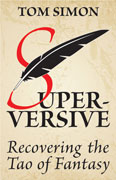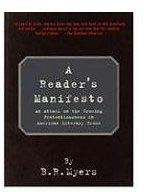Review: The Sword of Shannara, by Terry Brooks
As I have said before, I have a high opinion of Tom Shippey as a literary critic, but that does not exempt him from criticism in turn. At one point in J.R.R. Tolkien: Author of the Century, he makes what may be the single most fatuous remark I have ever had the misfortune to read on the subject of Tolkien’s imitators. He is discussing The Sword of Shannara, and after giving a long list of the obvious borrowings or plagiarisms of Tolkien in that work, he adds:
The similarity is so close that in a way it is hard to tell how good or bad the result is.
And yet in the very same paragraph he recovers his usual perspicacity, and puts his finger on the secret of Terry Brooks’s commercial success:
What The Sword of Shannara seems to show is that many readers had developed the taste (the addiction) for heroic fantasy so strongly that if they could not get the real thing they would take any substitute, no matter how diluted. [Read more…]










Recent Comments